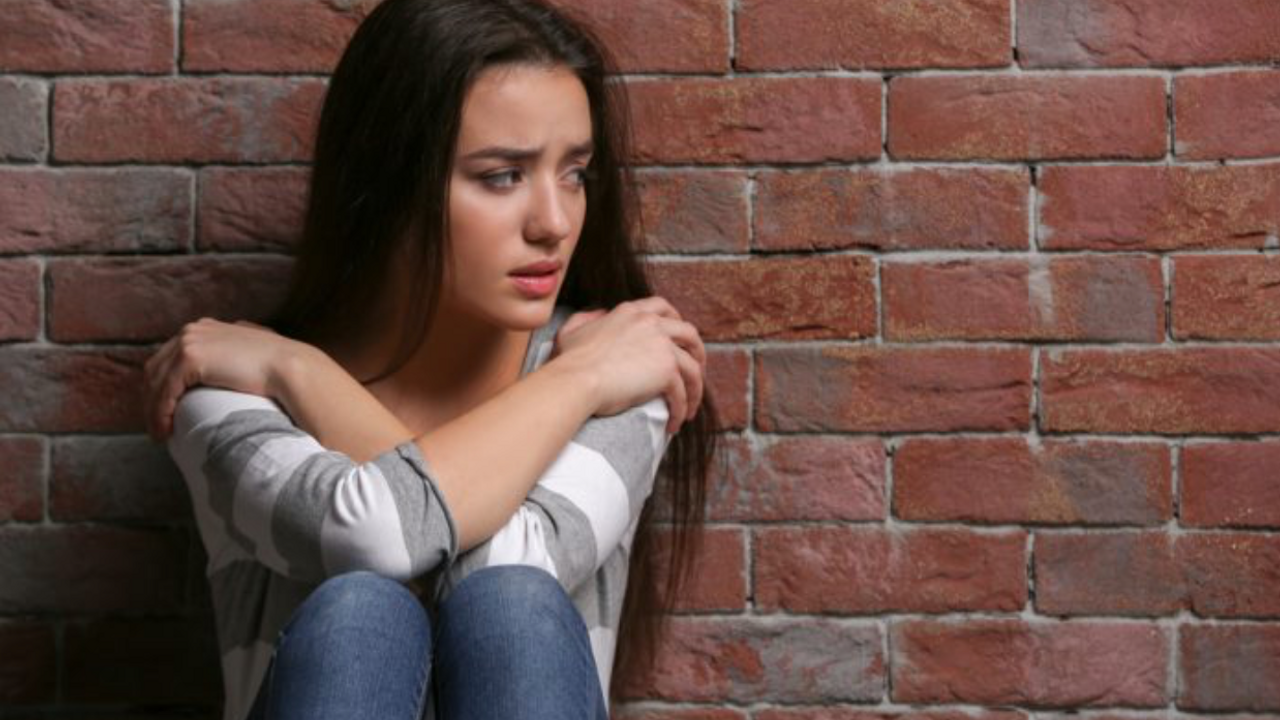
Tools to Cope with Anxiety as a Student
Mar 25, 2022This post was written by CSUCI student Paige Egizi.
The first time I had a panic attack, I was in junior high. I got a bad grade on a test and I did not want my parents to find out. The idea of them finding out about my grade, the fact I got that grade, and all the other things I was dealing with had caught up to me. I was in my room with my dad and I could not stop crying, my chest felt tight, I couldn’t breathe and the unknown future seemed far too overwhelming to bear. I started hyperventilating and my dad, a former paramedic, helped me through it.
Fast forward to 2016 and I was in my first year at CSUCI, as a 25-year-old, and I left school one day and went home and stayed in bed in the dark with my phone off for almost 24 hours because life was just too overwhelming. I am no stranger to a panic attack. It has been about 13 years since my first one and I still have them about once a month as an adult.
Throughout high school, my anxiety showed up here and there. I was dreading the unknown, I was constantly nervous about not having control over every single detail of my life and it impacted me physically, and it still does. There have been times when I have wanted to quit school because it just seems too anxiety-inducing. I am happy to say I am graduating with my bachelor's degree in May and am applying for graduate programs.
My parents didn’t understand most of the time, they grew up in a generation where you "just suck it up" or "deal with it." I didn’t tell my family about my diagnosis until 2017, once I started regular medication to help with my anxiety. I was so afraid to hear what they would say, or that they would see me as weak or think that it was my fault. I was fortunate enough to have a partner that pushed me to go see a therapist and get the medication I needed.
If you are dealing with anxiety, you are not alone. According to the National Institute of Mental Health, 31.9% of youth aged 13-18 deal with an anxiety disorder. The pressure of getting good grades, having a social life, participating in extracurricular activities and possibly holding a job, dealing with a stressful family situation or other undesirable circumstances can seem like too much to bear for a teenager. I wish I could tell you it goes away, and in some cases, it does. My anxiety got worse in college, but I found tools that have helped me cope far better than I previously had been able to and that is what I want to share with you.
It is vital to understand that having anxiety is not your fault. Once you understand this, it is easier to talk about it and to ask for help. Next, talk to someone about how you are feeling. A friend, a school counselor, your parents. It is also important to have daily habits that help reduce anxiety:
- Wake up five minutes earlier: whether it be making a to-do list or taking those five minutes to listen to affirmations on YouTube, this will help start the day off in a positive way.
- List making: This has been one of the most helpful tools for me. Every morning I make a list of my top three to-do actions for the day. I used to make a list of everything I had to do that day, but it got overwhelming.
- Mindfulness meditation: If you do only one thing from this list, make it meditation. My favorite meditation app is called "10% Happier." It is free to download and there is a 7-day course to teach you how to meditate. Other apps include: Calm, Headspace and Aura. You can also find useful meditation materials on YouTube.
- Exercise: Exercise uses the anxious energy you may be feeling in a positive way. It also helps to destress and will help you sleep better.
- Cut caffeine: Caffeine is a stimulant. If your brain is already on overload, this will not help. Try decaf coffee if you like the flavor or switch to tea.
- Limit social media use: Scrolling through the highlights of other people's lives can induce a ton of anxiety. Limit time on social media and unfollow accounts that make you feel like your life is not good enough!
- Disability services at school: A close friend of mine that deals with anxiety and depression has enlisted in her school's disability services. While this varies from school to school, for her it means she gets extra time to take tests in a quiet space and someone to send her weekly notes from class. Check with your school to see what they offer.
- Therapy and medication: There is no shame in seeking professional help. Seeing a therapist weekly and going on medication have helped me immensely. These things will not fix anxiety, but it may help make it more manageable for some people. You still have to engage in anxiety reducing behavior and management every single day.
Dealing with anxiety and other mental health issues is difficult. It is even harder when you try to do it on your own. Do not be afraid to ask for help, and do not be too shy to reach out to a friend that may need help. They may need it more than you know. By changing our attitudes about mental illness, we are helping to end the stigma and shame that surround it.

